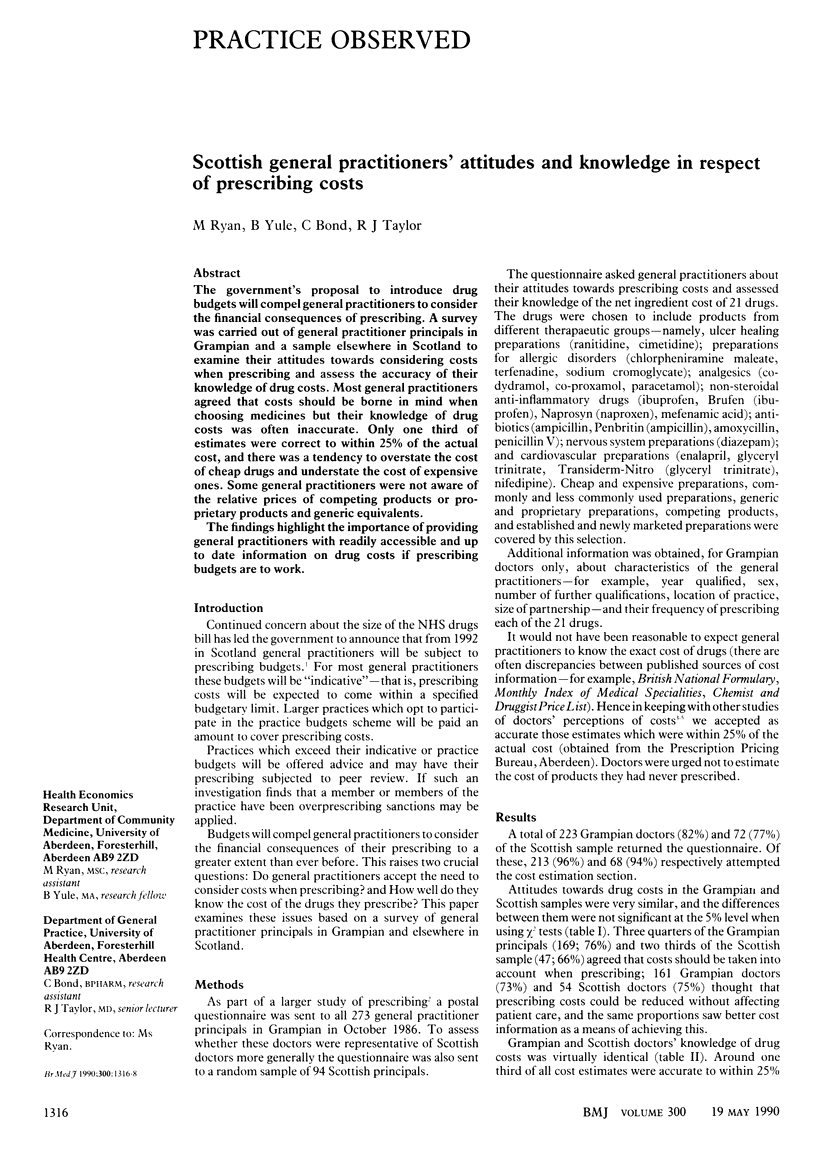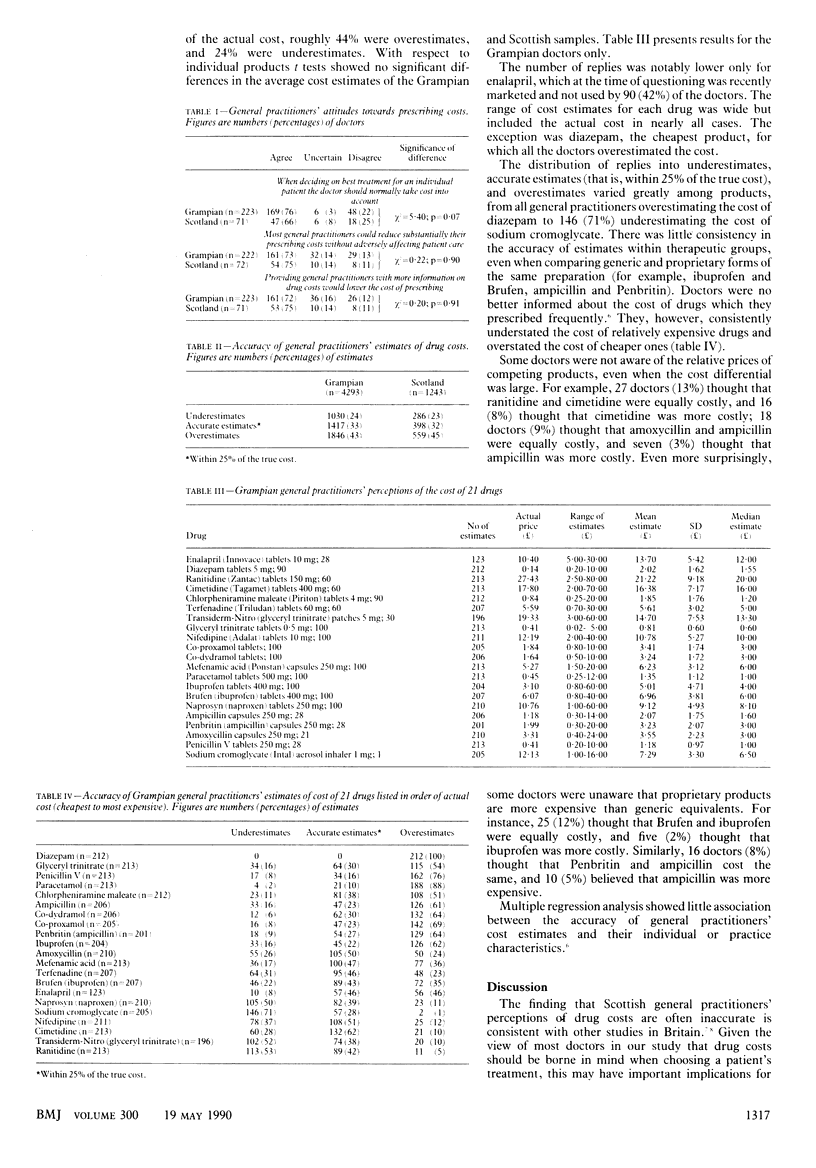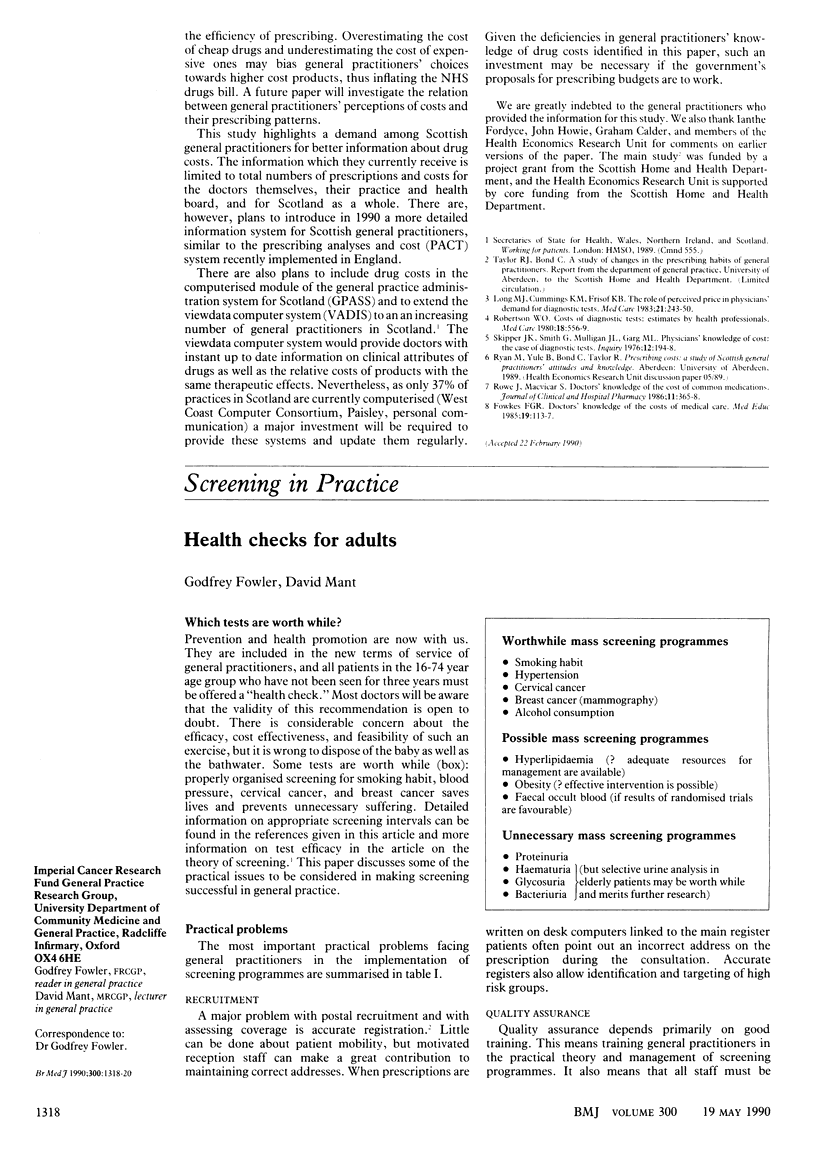Abstract
The government's proposal to introduce drug budgets will compel general practitioners to consider the financial consequences of prescribing. A survey was carried out of general practitioner principals in Grampian and a sample elsewhere in Scotland to examine their attitudes towards considering costs when prescribing and assess the accuracy of their knowledge of drug costs. Most general practitioners agreed that costs should be borne in mind when choosing medicines but their knowledge of drug costs was often inaccurate. Only one third of estimates were correct to within 25% of the actual cost, and there was a tendency to overstate the cost of cheap drugs and understate the cost of expensive ones. Some general practitioners were not aware of the relative prices of competing products or proprietary products and generic equivalents. The findings highlight the importance of providing general practitioners with readily accessible and up to date information on drug costs if prescribing budgets are to work.
Full text
PDF


Selected References
These references are in PubMed. This may not be the complete list of references from this article.
- Long M. J., Cummings K. M., Frisof K. B. The role of perceived price in physicians' demand for diagnostic tests. Med Care. 1983 Feb;21(2):243–250. doi: 10.1097/00005650-198302000-00011. [DOI] [PubMed] [Google Scholar]
- Rowe J., MacVicar S. Doctors' knowledge of the cost of common medications. J Clin Hosp Pharm. 1986 Oct;11(5):365–368. doi: 10.1111/j.1365-2710.1986.tb00865.x. [DOI] [PubMed] [Google Scholar]
- Skipper J. K., Jr, Smith G., Mulligan J. L., Garg M. L. Physicians' knowledge of cost: the case of diagnostic tests. Inquiry. 1976 Jun;13(2):194–198. [PubMed] [Google Scholar]



